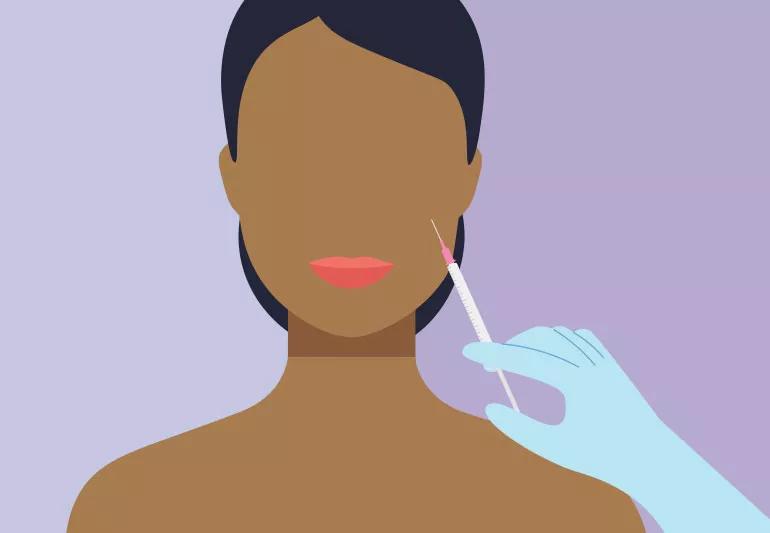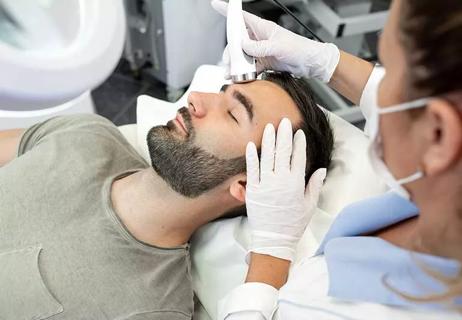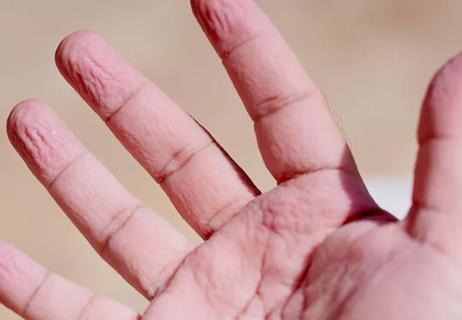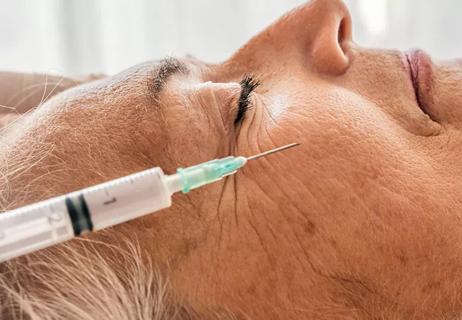Get the truth from a dermatologist

Some people are comfortable with aging gracefully, while others are always scouring the internet for that Holy Grail product or procedure that will keep them fresh-faced forever. If you’re in the fountain of youth camp, the good news is that we’re living in an age where you don’t have to go under the knife to rejuvenate your face or body. Dermal fillers can help smooth out those dips, dimples, lines and wrinkles while producing natural-looking results.
Advertisement
Cleveland Clinic is a non-profit academic medical center. Advertising on our site helps support our mission. We do not endorse non-Cleveland Clinic products or services. Policy
Recently, there have been reports of people with dermal fillers experiencing facial or lip swelling after receiving COVID vaccinations. So, if you’re considering a dermal filler or you’ve been getting one injected regularly, is the COVID-19 vaccine a no-go? Keep reading to get the full story from dermatologist Shilpi Khetarpal, MD.
Dermal fillers are minimally evasive and people have turned to them more and more to combat the signs of aging.
As we get older, we lose the volume and fullness in our faces. As a result, our facial muscles are closer to the skin’s surface and smile lines, crow’s feet, sunken cheeks and temples, and thinner lips become more prominent. Dermal fillers can help make the face look fuller and blur out our self-perceived imperfections.
Dr. Khetarpal explains.
“The majority of the dermal fillers that we use are made out of hyaluronic acid and that is something that’s found in our skin. Over time — with age, sun, and genetics — we lose a certain amount of volume and hyaluronic acid in our skin. Dermal fillers make it possible to replace what we’ve lost. So, if someone wants to add a little more shape or plumpness to their lips or a little bit of fullness to their cheeks where they once had it, it’s replacing what they’ve lost. In doing this, it can make people look more youthful, more attractive or just more natural — like a younger version of themselves.”
Advertisement
Here’s a quick rundown of some popular dermal fillers.
Hyaluronic acid fillers are often used to improve the skin’s contour and reduce the appearance of scars, injury or lines. Hyaluronic acid is a natural substance that’s found in your body. High concentrations of it are found in soft connective tissues, the fluid around our eyes, some cartilage and joint fluids, and skin tissue.
Calcium hydroxylapatite is a mineral-like compound that’s naturally found in our bones. It’s used to fill in severe facial creases and areas that have lost their fullness. Calcium hydroxylapatite was first used in dentistry and reconstructive surgery and has a reputation for being very effective and safe.
Polyalkylimide is a semi-permanent dermal filler and is used to fill deeper wrinkles, depressed scars, thin lips, cheekbones and the jawline. Polyalkylimide has very little reaction to human tissue and it won’t interfere with x-rays.
Polylactic acid helps the body produce collagen. This type of dermal filler is referred to as a stimulator. Polylactic acid is non-toxic, biodegradable and has been used as a suture material for decades.
PMMA is considered a semi-permanent filler and is most often used to treat medium-to-deep wrinkles, folds, pitted scars and thin lips. PMMA is often used in cases where people want a more permanent solution for their skincare concerns. This filler has been used in permanent surgical implants.
Back in December, the FDA reported that two people experienced facial swelling after being vaccinated during Moderna’s phase three trial. One person had a dermal filler placed six months before they were vaccinated. The swelling occurred a day after they received the vaccine. The second had a dermal filler placed two weeks before vaccination and the swelling appeared two days after they were vaccinated.
A third person reported swelling in the lips two days after vaccination. The window of time between their dermal filler placement and vaccination was unknown.
“I have seen patients who’ve had reactions to the vaccine and their fillers were placed anywhere from weeks to years prior. In one case, one person had a filler placed in 2018 and experienced swelling after receiving the vaccine. So, it appears that it can happen at any point since these fillers can last much longer than we think,” says Dr. Khetarpal.
Dr. Khetarpal emphasizes that these reactions aren’t unique occurrences.
“This isn’t something new. With flu shots, other bacterial/viral illnesses, vaccines or dental procedures, these are immunologic reactions that are occurring. They’re not allergies. They’re not infections. These are just immunologic reactions where swelling occurs in places where people have or once had fillers.”
Advertisement
She also adds that these reactions don’t happen regularly.
“Typically these immunologic reactions are very rare. Within the last eight years of my practice, I’ve had about three or four patients who were sick with pneumonia or had a kidney infection. They all experienced swelling where their dermal fillers were placed. However, it’s not something that I counsel patients about very often. When I talk to patients about fillers, I do explain to them that even though studies might suggest that dermal fillers can last for about 12 months, they can be in their bodies for much longer than that. Also, with these reactions, it depends on the area where the filler is placed. For example, areas like the lips or the mouth are very mobile — like when we talk or eat. So fillers in these areas are not going to last as long as fillers that are in immobile parts of the body.”
Dr. Khetarpal adds that with the interactions she has seen, most were treated with antihistamines, oral steroids or they cleared up on their own. If you should experience one, she strongly recommends notifying your dermatologist right away so they are aware of what’s going on and can determine the best course of action.
Considering only three trial participants out of 15,184 people who received at least one dose of Moderna’s mRNA-1273 vaccine experienced dermal filler-related reactions and what she’s seen first-hand, Dr. Khetarpal assures us that it is still very safe to get dermal fillers and they shouldn’t stop anyone from getting a COVID-19 vaccination.
Advertisement
She says a strict rule of thumb for dermatologists is to avoid administering dermal fillers two weeks before or after vaccinations just to be safe. If you’re planning to get plumped up and vaccinated when you can, be sure to discuss this with your dermatologist so they can adjust your treatment plan accordingly.
In the meantime, the American Society for Dermatologic Surgery has encouraged its members to continue their current practices with regards to dermal fillers, including getting thorough medical histories for all patients. They also advise that dermal fillers should only be administered by board-certified physicians who are experts in both the injection of dermal fillers and the management of complications that could arise from them.
Advertisement

Sign up for our Health Essentials emails for expert guidance on nutrition, fitness, sleep, skin care and more.
Learn more about our editorial process.
Advertisement

Topical treatments — and even some cosmetic procedures — may help reduce the appearance of this crinkled-paper look

Though popular with influencers and celebrities, there’s little research to back up claims that they work

This noninvasive procedure can help aging skin by boosting collagen production

Your blood vessels shrink and your skin forms wrinkles to help you grip objects

Try limiting heat styling and eating a healthy diet instead

Lifestyle changes, neck exercises, injections and surgery can all help improve turkey neck

Using tape to smooth wrinkles may be a temporary fix, but there are still risks

What you can do for laugh lines and facial creases

Even small moments of time outdoors can help reduce stress, boost mood and restore a sense of calm

A correct prescription helps your eyes see clearly — but as natural changes occur, you may need stronger or different eyeglasses

Both are medical emergencies, but they are very distinct events with different causes